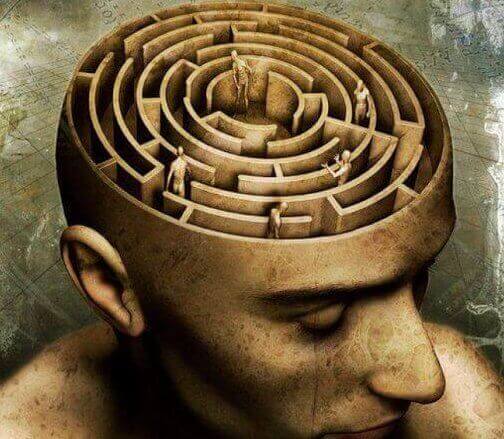Philosophers and scientists have long wondered how we perceive reality and how we acquire knowledge, in this article we will talk about one of the positions that answers these questions, constructivism, constructivist theory offers us an interesting look at the study of psychology.
Before talking about constructivism itself, it is necessary to review its history to understand where this position comes from, seeking simplicity in the exhibition, we will try to place it in two different ways: the background in the acquisition of knowledge and the background in the perception of reality.
- Where do our mental ideas and representations come from? The classical theories that explain this issue are grouped into two currents: empiricism and innatism.
Empiricism assumes that all our knowledge is given through experience, even the smallest and simplest idea would be given by our environment, only then captured by our brain and learned.
The assumption of this position is that knowledge is completely out of the subject and happens to your mind: it may come from others or from reality itself, which the subject would copy. Empiricism is a theory very consistent with common sense and has inspired psychological currents such as conductism.
Innatism was born because empiricism seems insufficient. While we can accept that much of the knowledge has been acquired abroad, it is nevertheless true that we were born with certain provisions, such as the relationship between us through sophisticated language.
Thus, the innate assumes that there are knowledge or programs that are not acquired through experience. Would this knowledge? or schedules be, for example, the ones that are much needed to organize our experience (categories of space, time, number?).
The problem with innatism is that it fails to explain how this knowledge is born or why it appears at different times and, above all, why individual differences exist, constructivism seeks to solve this problem, as well as the problems that empiricism also seems to present. .
Constructivism assumes that the acquisition of knowledge is the result of a continuous interaction between reality and the subject, the individual is like an intuitive scientist, collects data about his reality and creates interpretations about his environment, these interpretations would help us create our own world and use it as the basis for later interpretations.
This has also been one of the big questions, and many possible solutions have emerged, the first most intuitive answer that history shows us is realism, from this position, if we think that we have received an exact copy of reality, what we see, hear and touch is exactly what we perceive; and all individuals also perceive it.
Realism soon fell by its own weight, many philosophers realized that the senses did not perceive reality correctly, even Descartes and Hume came to say that it was possible that behind the senses there was no reality, here is another possible solution: the senses give us an inaccurate reflection of reality. We no longer directly observe reality, this premise says that what we see is a shadow of reality.
Still, we can see some shortcomings in this last explanation, for example, although we all have the same meanings, not all of us perceive the same thing in the same situation, it seems that the shadow of reality changes according to the individual who looks. This is where constructivism tells us that our perception is not just a reflection, it is something more complex.
Constructivist theory tells us that the senses give us information about reality, but it is very chaotic for our brain, therefore, to process this information, the brain must structure it and, to do so, categorize all this information broken down into concepts and interpretations. With this statement, reality becomes unattainable for us.
In short, we can understand constructivism as an epistemological postulate in which we are active agents of our own perception, we do not receive a literal copy of the world.
It is we, through our perceptions, who shape the world in ourselves, but also outside. Now, if each of us is an active person who builds our reality, how is it possible for each of us to have a very similar view of reality??
To find an answer to this, we can turn to the psychologist Vygotsky and his socio-constructivist theory based on culture. Although everyone builds their own world, we are all born into a society and culture that guides us. When we are born immersed in a culture, it not only guides our interpretations, but we also borrow a multiplicity of constructions. The evidence for this is that our constructions of reality are more like people in our culture than people from faraway countries.
The underlying conclusion is that all ideas, knowledge and theories are social constructs; reality is alien to us, even physical laws would have a stake in social construction in a shared conceptual framework; in that sense, science would no longer explain the facts of reality. , but the facts of our joint construction of reality.
These assumptions involve, to some extent, a revolution in the history of psychology and other sciences. Thanks to socio-constructivism, many areas of psychology have completely changed paradigms and expanded their spectrum. The question that can now be asked is: is constructivism the right answer or do we still have much to discover?

